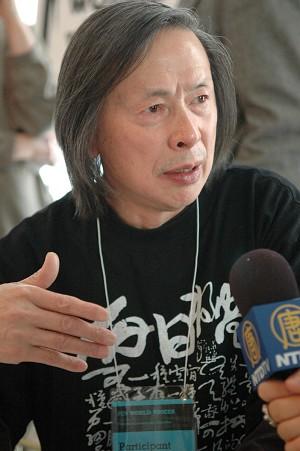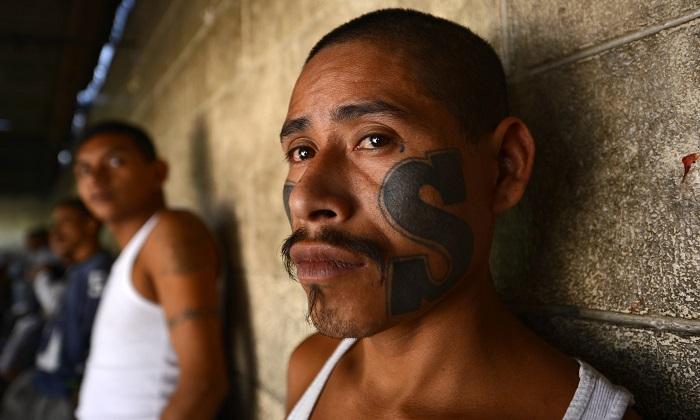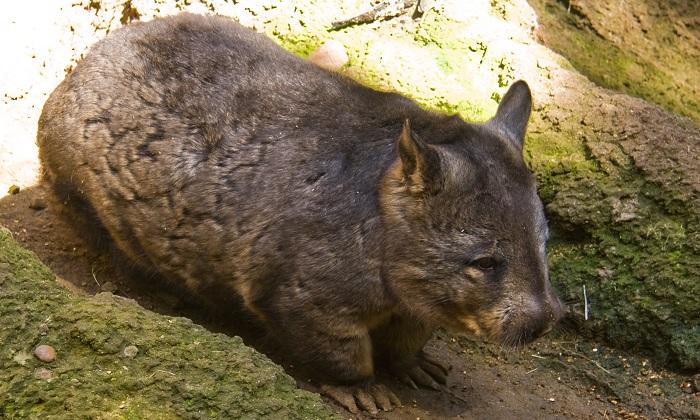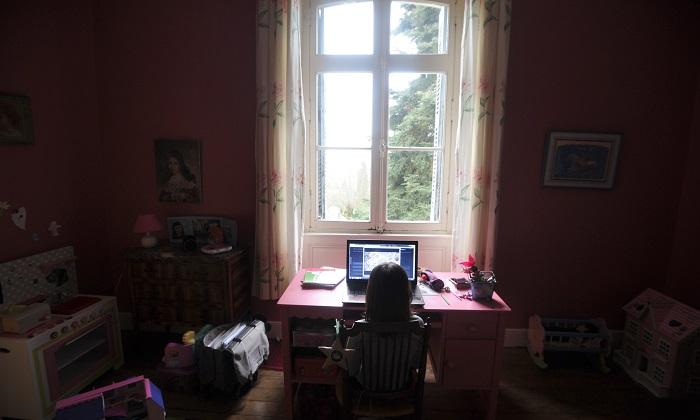Huang Xiang is one of China’s most respected contemporary poets yet he remains little known inside his homeland. Perhaps one day soon this will change.
After years of imprisonment and persecution for his writing, pro-democracy and human rights activities, Mr Huang and his wife in 1997 sought and found freedom in the US. The 67-year-old is now the resident poet in Pittsburgh under that city’s Asylum programme for writers.
A vast range of topics is covered in Mr Huang’s writing – from philosophy to politics to the beauty of the rural provinces and beyound.
Sometime after the Communists took power in 1949 his father was executed for his serving with the Kuomintang’s Nationalist Army. With his family in dire circumstances, and because of his father’s military service, Mr Huang barely received state schooling. One could say he was fortunate to miss out on a Maoist education and its brainwashing qualities. Relying on self-study he would gain knowledge in literature, philosophy, politics and religion.
Mr Huang began writing poetry in the 1950s and by the age of 17, he had his first published poem. One year after that, he would be sent to a Lagoi, (labour camp), not for his writing, but because he had left a province in an effort to seek employment without official permission. He was sentenced to four years.
According to poetryfoundation.org in 1965 he again found himself arrested and sent to another labour camp for three years for engaging in “counterrevolutionary” activities, primarily for writing, reading and discussing human rights issues. Today in the People’s Republic of China the expression counterrevolutionary activities, has been replaced by activities that “endanger national security”.
In total, for his writing, avocation of democracy and human rights Mr Huang was imprisoned on six separate occasions.
Although his works were banned and continually destroyed, Mr Huang never ceased writing his poetry, writing in secret and often reciting to memory.
In 1978 he came to the attention of the international community for taking part in what is known as the Democracy Wall movement where he posted political poems on a street wall.
Sometime in 1996 Mr Huang discovered that he had been named the key figure of a counterrevolutionary group because of his writings. In concern of being arrested he and his wife fled to the US.
As for the Chinese people inside mainland China his writing and his name is little known, suppressed by the Communist authorities.
He is currently visiting Australia where he spoke and recited his poetry at a pro-democracy in China forum in Melbourne and at a Nine Commentaries on the Communist Party forum in Sydney last weekend.
The following poems will be published in Huang Xiang’s new book in English: A Lifetime is a Promise to Keep – Poems of Huang Xiang .
A Promise to Meet in This Life
Extremely quiet
Lying face-up under the sky
The body is
An open book
Each page I turn over
Is a day
Of the known and the unknown
A new day
That touches the heart for no reason
Words written down
Bring the mist-soaked shrubs
To streaming tears
As they gather round and decipher
That which is not written down
Hither and thither
The elusive wind
Ventures a guess
A lifetime is like a promise to meet
It’s as if I had waited for this
For a thousand years
Above and below my head
Extreme emptiness
Between the crests of grasses and fingertips
Birds and clouds
Flow
- 2005
The Wisp of Light
There is a sort of space
that’s a different vastness
There is a heavenly body
that’s a different great arch
Each cell in my body
is an unattainable distance
The unreachable constellations
find shelter in my flesh in my blood
Death, not to be denied
rises as it slowly falls
Life, not to be denied
advances as it rushes away from us
Under the luminous sky over this world of dust
I grow old day after day
In the space beyond space
Alone, I blossom like a child
- 2002
Files on Life and Death
— Experiencing hypnosis
What we have never been able to give up
is exactly what we have had from the start
We are always seeking in persistence
that which has been forgotten and lost
On the giant screen of rolling time and space
a preview of the unknowable next life unfolds
A long sealed-off darkness opens all of a sudden
to allow inspection of the vanished previous life
A spark in the ever-turning wheel of reincarnation
To live is to sleep in awakening
- 2006
The Cosmic Human Body
Eyes closed
Open eyes all over
the body
Sitting in meditation
with legs crossed
one looks inward
at oneself
Inside the body
four seasons of tumbling winds and rippling water
At every instant
the muscles
are like formless shifting
piles of rocks and sand
The skeleton moves undetected
like bamboos and trees
outside the body
There are also sperms and blood
veins and sinews
extending the mysterious lines
on the cosmic human body
Flesh covered by the map of constellations
The sun and the moon
two flying orbs circling
day and night
glide on the invisible tracks
of blood flowing through the veins
to arrive at Great Carefreeness
to arrive at
Nothingness
- 2006
Beyond Form
Great music has no sound
Great image has no form
Laozi
Below the body
a meditation pillow
of sand dunes
a sitting mat
of the ocean
The vast
Gobi Desert
is funneled into
the boundless
watery world of
the toes
In silence the sky-high tide
cascades
from the top of the head
like long loose hair
falling to the shoulder
A lightning bolt
of numerous crisscrossed
birds’ wings
shoots from
the pupils
Solemn thunders
of deer’s running hooves
quiver
at fingertips
Floating clouds
rise at
the break of dawn
of the heart
The sun
sets into
the twilight
of the navel
Flesh and blood of boundless time and space
Earth
like a tiny egg
in the ovary
revolves around the
axis of
the phallus
- 2006
The translations from Chinese are copyrighted by Michelle Yeh.




